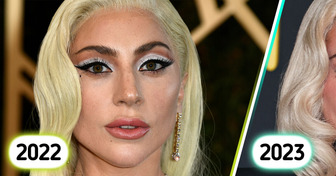10 Dangerous Self-Care Mistakes We Make When Trusting Beauty Bloggers

In our Solar system, most planets spin counterclockwise — but not Venus. This rebel planet decided to spin clockwise, and scientists are still trying to figure out why. By the way, why do planets rotate in general? What defines the speed of their rotation? Does the Sun rotate? Buckle up and let’s try to answer these questions. Venus is the second planet from the Sun and the hottest planet in our Solar system. Did you know that Venus is sometimes called Earth’s “twin”? That’s because it’s similar in size and composition to our own planet. But that’s where the similarities end, because Venus is a pretty crazy place, to say the least. For example, the weather. On Venus, it’s always hot and cloudy. And when I say “hot”, I mean it — it’s like over 800°F there! And those clouds? They’re not made of water like the ones on Earth. Instead, they’re made of sulfuric acid. So yeah, you wouldn’t want to go outside without a really good sunscreen on Venus.
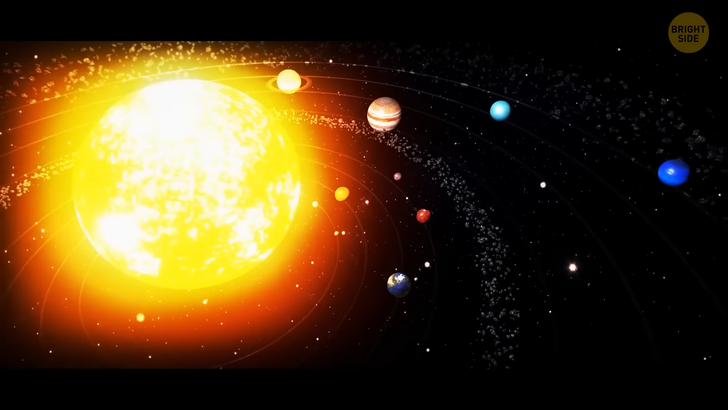
If you look at the photos taken from its surface, you can see these toxic yellow clouds and cracked, desolate landscapes. And the spacecraft that captured this turned off almost immediately after sending these photos! Poor fellow. But the surface of Venus isn’t just some solid, dark, flat land. In fact, Venus has mountains that are taller than Mount Everest! These mountains aren’t made of rock like the ones on Earth, though. Instead, they’re made of a kind of volcanic material that’s denser than rock. Venus is a pretty creepy place that holds many mysteries.
One of them has been puzzling scientists for years. And this is the planet’s rotation. Most planets in our Solar system rotate counterclockwise, but Venus isn’t like the other girls. It rotates clockwise. And that’s not all! It also rotates around the Sun faster than it rotates around itself. In other words, a year on this planet passes faster than a day! It’s almost like Venus made being quirky its life mission. But why is that? Well, scientists have a few theories.
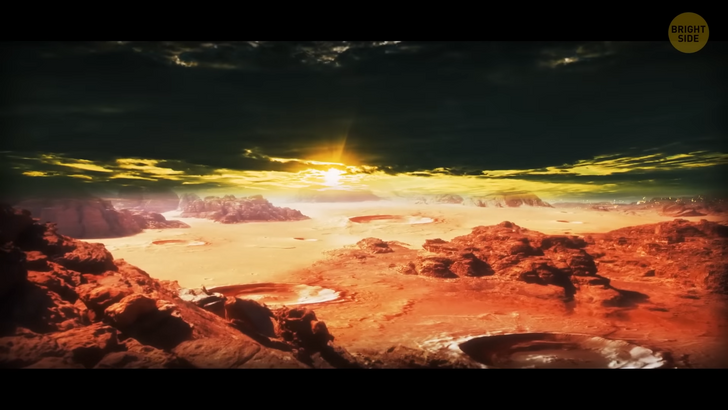
The most popular theory says that Venus was actually spinning counterclockwise like the other planets, but then something happened to flip it around. And what could that something be, you ask? A planet-sized object. Yep. Astronomers believe that something huge once collided with Venus, causing it to spin in the opposite direction. You can imagine this like a cosmic billiard shot, with this mysterious huge object being the cue ball and Venus being the target ball. But we can’t actually say that Venus is spinning the “wrong” way. There’s no such thing as a “wrong” direction of spin in the universe. This is actually called the “retrograde rotation”. This is when a planet rotates in the opposite direction to its orbit around the Sun. Venus, for example, has a retrograde rotation, which means that the Sun rises in the west and sets in the east on that planet. So now when the horoscope says something like “Mercury in retrograde”, you’ll know what it means. Oh, but Venus isn’t the only weird one in our Solar system! There are definitely some wacky ways that planets can rotate!
For example, most planets in our Solar system spin around an imaginary line called an axis. This axis is usually straight up and down in relation to the planet’s orbit around the Sun. However, some planets like Uranus have a tilted axis, which means it’s almost on its side in relation to its orbit. This tilt causes the planet’s poles to be nearly in the same plane as its orbit. The result? As the planet orbits the Sun, different parts of it receive different amounts of sunlight, causing extreme seasonal variations. For example, one pole might experience continuous sunlight while the other is in complete darkness for a long time. Uranus is the only planet in our Solar system that rotates on its side. Scientists think that it could repeat Venus’ history. Once upon a time, a large impact knocked Uranus off its original axis of rotation, causing it to tilt at an angle of 98 degrees. We should be grateful for Jupiter — its crazy gravity pulls all the asteroids and protects us from such collisions.
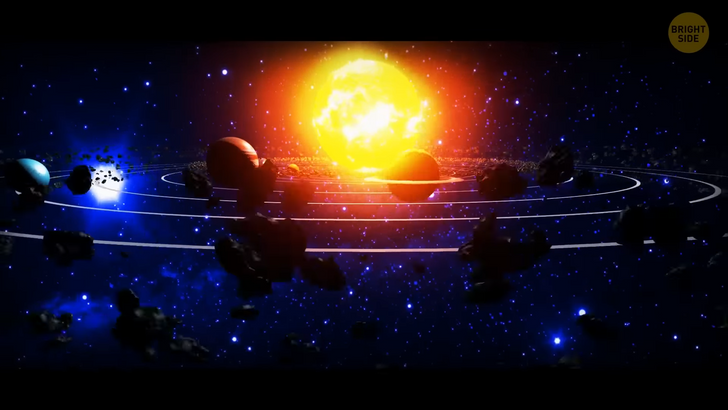
All this is somewhat similar to tidally locked planets. Imagine going on a date with a planet, but instead of being charming and mysterious like you hoped, it’s just staring at you with the same face all night long. That’s basically what it’s like to hang out with a tidally locked planet. Tidally locked planets are planets that rotate around their axis at the same rate that they orbit their star. This means that the same side of the planet always faces the star, while the other side is in permanent darkness. Being tidally locked can have some weird effects on the planet’s climate and weather. The side facing the star can become extremely hot, while the side can be incredibly cold. The atmosphere on the planet can also get pretty wild, with strong winds blowing from the hot side to the cold side. And it doesn’t have to be planets only — our moon also works this way! Did you know that we always see only one side of the moon? That’s because it’s tidally locked to the Earth.
We can also take the dwarf planet Pluto as an example. It has a strange rotational relationship with its largest moon, Charon. They’re tidally locked, which means that they always face each other with the same side. As a result, Pluto and Charon appear to “waltz” around a common center of gravity, creating a unique dance in space. But the oddities of our Solar System don’t end there. There are also planets with super-fast rotations. While most planets rotate at a fairly sedate pace, some of them are Sonic-levels fast. Jupiter, for example, rotates once every 9 hours and 56 minutes, which means that it has a day that’s less than 10 hours long!
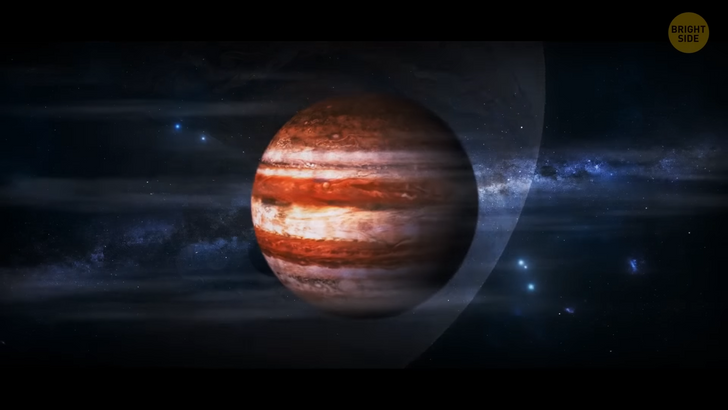
That’s fast enough to cause the planet to bulge out at its equator. And also, this rapid rotation creates strong bands of winds that can reach speeds of up to 400 miles per hour. And if all this still seems logical and kinda makes sense... Then how about chaotic rotations? Yep! Some planets have a rotation that’s so irregular and unpredictable that it’s known as chaotic rotation. This is often caused by the gravitational influence of nearby moons or other planets. And it’s mostly the case with moons and small objects like that. In our Solar System, some moons of Pluto, Saturn and Neptune have chaotic rotation.
By the way, the Sun rotates too, just like the planets. However, its rotation is not uniform — the equator rotates faster than the poles. Pretty weird, isn’t it? This phenomenon creates a magnetic field that’s responsible for phenomena like sunspots and solar flares. But all this raises an interesting topic... Why do planets rotate in the first place? This may sound like a silly question. But can you answer it? The answer might be a bit trickier than you imagined. It all started around 4.5 billion years ago with the formation of our Solar system. When it formed, it started as a large cloud of gas and dust. As the cloud began to contract due to its own gravity, it began to spin faster and faster, like a spinning top. This spinning motion caused the cloud to flatten out into a disk-like shape.
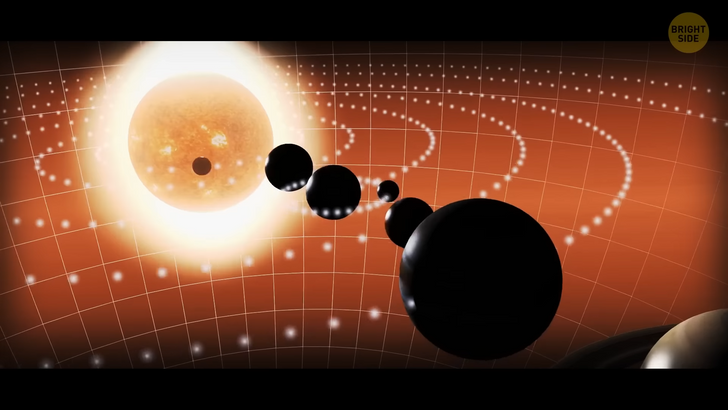
As the cloud continued to contract, the center became denser and hotter, eventually forming the Sun. Meanwhile, the material in the disk began to clump together and form planets. But because the disk was already spinning, this spinning motion was inherited by the planets as they formed. In other words, the planets rotate by inertia. They inherited the spinning motion of the cloud of gas and dust from which they formed. This is known as the conservation of angular momentum. This is the same principle that causes ice skaters to spin faster when they bring their arms in. And that’s a wrap on the wacky world of planet rotations! From the lightning-fast spin of Jupiter to the bizarre backwards rotation of Venus, it’s clear that our Solar system is full of surprises. But thanks to the laws of physics and the gravitational pull of the Sun, these planets continue to spin on, keeping time with the steady beat of the cosmos. Stay tuned.










